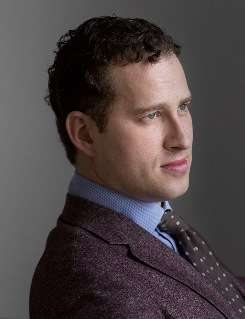|
Back
Drumming and Dreaming New York
David Geffen Hall, Lincoln Center
05/10/2018 - & May 11, 12, 2018
Sir Edward Elgar: Cello Concerto in E Minor, Opus 85
Pyotr Ilych Tchaikovsky: Symphony No. 1 in G Minor, “Winter Dreams”, Opus 13
Jian Wang (Cellist)
New York Philharmonic, Nikolaj Znaider (Conductor)

N. Znaider (© Lars Gundersen)
The year 1866 was a Russian blockbuster. That was the year Fyodor Dostoevsky, taking refuge from debt-collectors, from his wife, from his volatile mistress, was finishing The Gambler, where the theme was that of the author himself, the gambling addict in the fictional German town of Roulettenburg (a.k.a. Bad Homburg).
1866 was the same year that Pytor Ilych Tchaikovsky, already conflicted but dreaming of a tranquil future, finished his First Symphony. More than music, this first great truly Russian symphony started with two movement titles which were as personal to him as roulette was to Dostoevsky: “Daydreams of a Winter Journey” (nicely Schumannesque), and “Land of Gloom, Land of Mist” (totally Tchaikovsky).
Next to the last three symphonies, this First is relatively neglected. But when Israeli violinist-conductor Nikolaj Znaider played it last night, the work was not only resurrected, it almost literally exploded on the stage.
Mr. Znaider gave little heed to its subtitle “Winter Dreams”, positively ignoring the “tranquil” direction given by the composer. That languorous opening theme was played more like a fanfare for a march, and the following notes of the “dream” were the notes of a stalwart commando team, marching heedless into the fray. Perhaps too heedless. The climax here is one of silence, the great pause before the themes return. Mr. Znaider seemed well preoccupied with making the New York Philharmonic move ahead, and simply didn’t seemed concerned with this so inventive moment.
At first one was disconcerted by this tempo and this rendering. But Mr. Znaider knew what he was doing. The first, third and final movements broke the lassitude of the New York Philharmonic last night, taking them directly to the composer’s Fourth Symphony with its trumpet calls and drums.
Had the subtitle been missing, this could have been called the “Military Symphony”. That finale itself was a Cossack dance bursting at the seams, with a coda that was delicious kitsch. And Mr. Znaider had the orchestra under his control.
However idiosyncratic the conducting, Mr. Znaider and First Oboe Liang Wang outdid themselves in the second movement, one of the most beautiful–and balletic–movements in all Tchaikovsky. Mr. Znaider never once let down the guard in allowing this music to sing itself, and Mr. Wang played with all loveliness which the theme deserved. The songs were woven rather than played, the expressions seemed open-ended.
Granted, both the opening measures here and the Elgar Cello Concerto are almost obsessionally memorable. Yet it was this Adagio cantabile which remained in the mind long after the drums and trumpets of the finale.

J. Wang (© Xu Bin)
Cellist Jian Wang opened the program and showed immediately that he is one of the stellar grads from the Shanghai Conservatory. His cello is lyrical, his fingers are strong, his bow control shows a remarkable flexibility of color, of timbre, of accent. He is a remarkable performer, from whom one would enjoy hearing a full recital.
But something went wrong in the ravishing Elgar Concerto, though it was difficult to tell whether Mr. Wang or Mr. Znaider was at fault.
Yes, the Concerto is dreamy, utterly sensitive without a hint of sentimentality from gruff old Sir. Edward. Yet his espessivo in the first movement was depressive than expressive. It seemed to go over the top into the land of dreams. Mr. Wang avoided the subtext, the inner intensity, the shadows of this gorgeous movement. His Elgar was the heartache which transcended language–and Sir Edward’s language was more eloquent.
He had no problem in that all-too-brief second movement, and his return to Elgar’s nostalgic finale was again perhaps too heartrending.
Then again, in the final movement lento, his fragility was affecting, and his inwardness on the final diminuendo was effective enough. But so beautiful were Elgar’s valedictory measures here that one wishes Mr. Wang had played the entire work not as a Tchaikovsky-like grief, but the dignity of the composer’s noble farewell to life itself.
Harry Rolnick
|